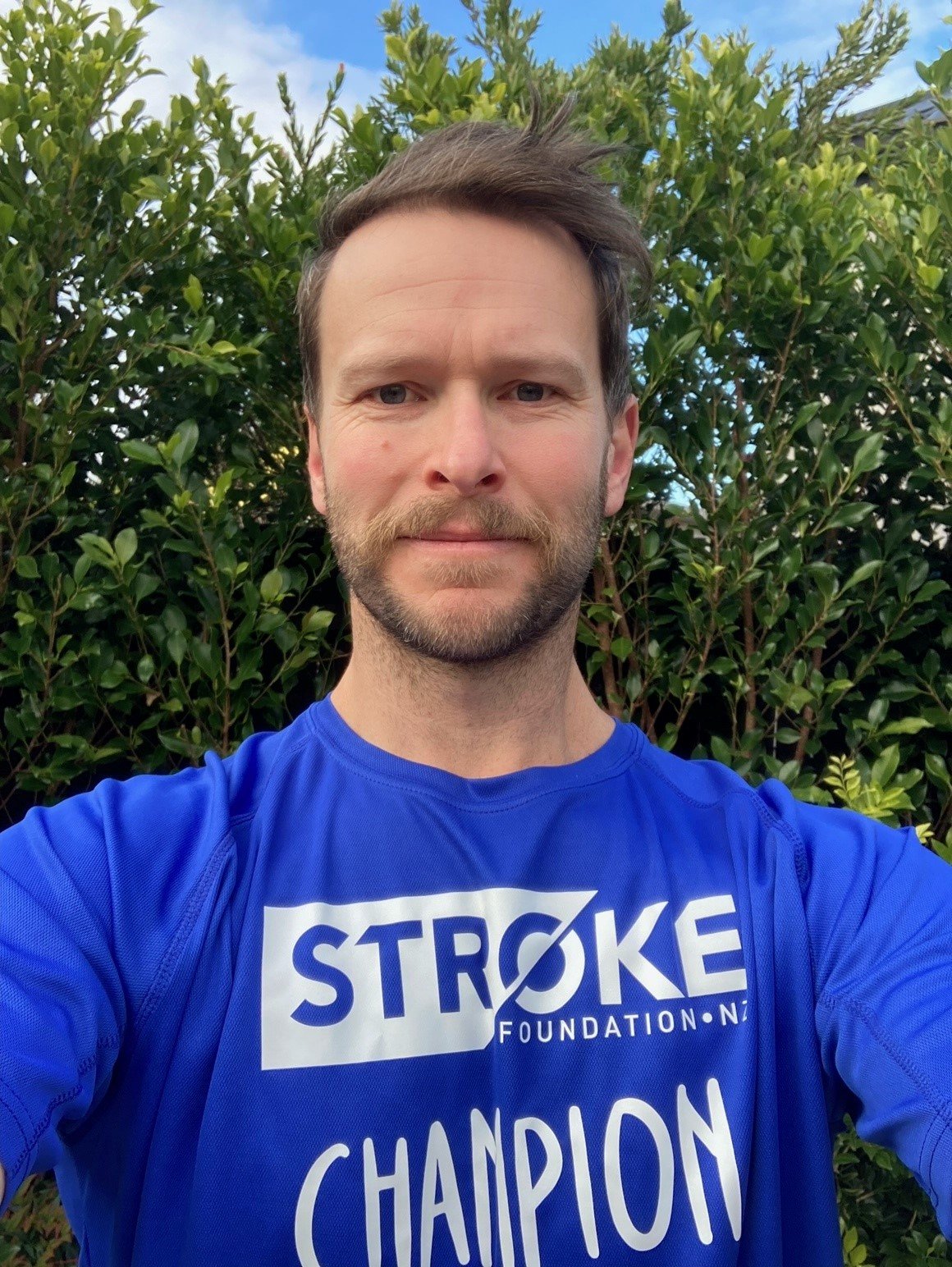WILLIAM EIVERS STORY
______________________
William "Wal" Eivers has a special reason for fundraising for the Stroke Foundation
in the Rotorua Half Marathon.
"There's lots of good things to raise money for, but a stroke is something that I've personally experienced," Wal explains.
Wal was only 35 years old when he experienced a stroke. A runner throughout his life, he had always kept fit and healthy. In 2018, he was training for a marathon, but four days before the event, he found himself unable to speak.
"I tried to say goodbye to my wife, but the words didn't come out properly," he recalls. "I thought I was just really tired, so I carried on and went to work."
When he got to work, he tried to say good morning to his colleagues - yet nothing came out when he tried to talk.
Wal knew about F.A.S.T (Face drooping, Arm weakness, Speech difficulties, and Take action - call 111) and wondered if he was having a stroke. But he found that, other than having trouble talking, his face and arms were behaving normally, and internally, he felt fine. He thought he'd wait and see how things progressed.
Even if someone is only experiencing one symptom of stroke, it is critical to get medical attention as soon as possible.
When Wal found he still couldn't speak after a couple of hours, he headed to the hospital, A CT scan revealed nothing suspicious, and doctors initially suspected he was having a migraine. Wal was told that he could get an MRI, but he would have to wait for several weeks. Even though Wal did not have any stroke symptoms other than speech difficulties, he still had a strong feeling he had a stroke and knew that he couldn't wait that long. He stayed at the hospital and eventually he was told that he could get an MRI that day.
And sure enough, the MRI revealed that Wal had experienced a stroke in the speech centre of his brain.
Wal's stroke was the result of a patent foramen ovale (PFO), or a hole in the heart. Everyone is born with this hole, and it usually closes shortly after birth. For some people, it never closes. A PFO can allow a clot to travel through the heart and into the brain, causing a stroke. Wal's PFO was corrected soon after his stroke.
While Wal's recovery focused on regaining the ability to talk, six years on, he feels like a normal guy.
"Most of the time I can talk just fine," he says. "I get a little bit of Yoda-speak when I'm tired, but otherwise, I'm doing pretty good."
After an intense recovery, which involved regaining his speech, Wal was keen to keep running as part of his life. He runs regularly so he can keep up with his young children and has taken part in several half marathons since his stroke.
On top of raising money for the Stroke Foundation, Wal wants his story to encourage people to speak more openly about their health.
"Talking about health issues can get people to react sooner to warning signs and be proactive," he says.
Do you want to join Wal and be a Stroke Champion?
Sign up here: https://the-stroke-foundation-of-new-zealand.grassrootz.com/

If you or someone you know experiences any signs of stroke (Face drooping, Arm weakness, Speech difficulties), call 111 immediately.